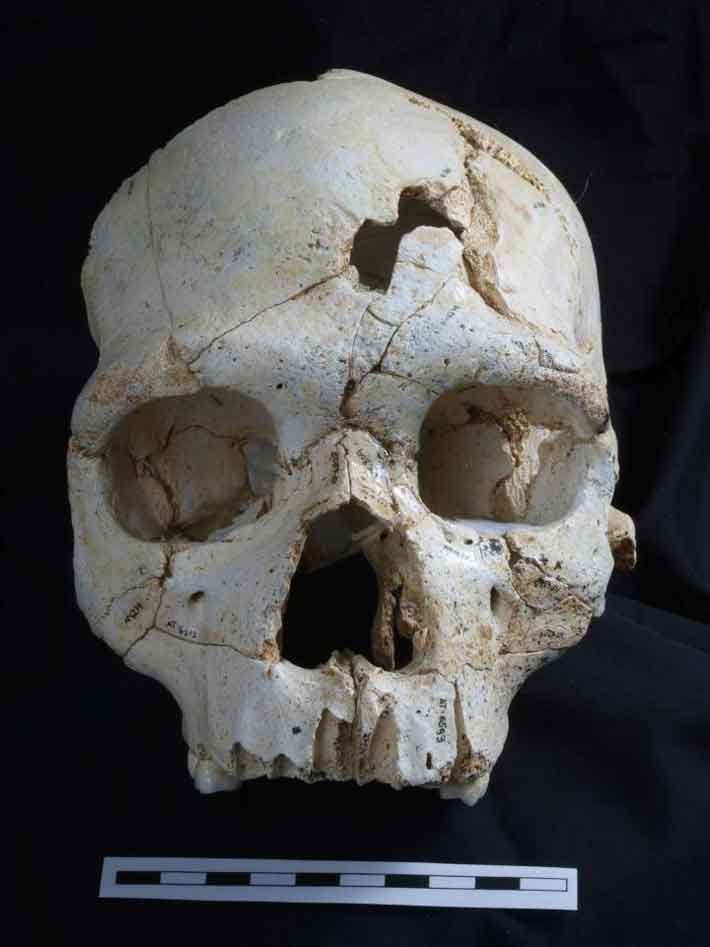The first murder described in the Bible is that of Abel, slain by his brother Cain. However, as the fossil record attests, humans have been killing each other for hundreds of thousands of years before this, well before the emergence of our species Homo sapiens. That human death predated the earliest possible date for Adam is impossible to deny as the fossil record bears eloquent testimony both to the antiquity of the human lineage and the stark fact of human death stretching back well before 6000 years ago. More to the point, the archaeological evidence of violent acts committed by humans against each other, as well as evidence of deliberate compassion shows that the contradictory mix of mercy and violence that characterise human nature stretches back well into the past, and can be found even among other hominin species.
Over 400,000 years ago, the bodies of at least 28 members of the hominin species Homo eidelbergensis, believed to be ancestral both to Homo sapiens and Homo neanderthalensis, were dumped into the Sima de los Huesos cave, located in northern Spain. As to how they got there, speculation ranges from deposition by wild animal to accident, to deliberate disposal of bodies by other hominins. According to the palaeoanthropologist Nohemi Sala, at least one of the hominins was deliberately killed:
Sala discovered the evidence of murder while studying breakage patterns of the bones—6,700 in total. Most breaks had occurred over the millennia that the bones sat in the ground, but one skull had some very distinctive damage. Two breaks in the forehead appear to have occurred while the individual was alive. With no signs of healing, they indicate the individual did not survive long after being struck. The wounds had been made by a blunt object, and each blow was probably deadly on its own, which rules out the possibility of a hunting accident or unusual suicide attempt. [1]
(Courtesy Javier Trueba / Madrid Scientific Films)
Damaged Homo heidelbergensis skull
Staring at the remains of a 430,000 year old murder victim forcefully reminds us that while Cain's murder of Abel is arguably one of the most famous murders, it is by far not the first. More to the point, given that the victim and almost certainly the murderer were members of the earlier human species Homo heidelbergensis, the human genius for murder did not begin with Homo sapiens, but predates our species.
Sala's investigation of the reasons why these hominin bodies ended up at the bottom of a cave revealed something even more fascinating. Homo heidelbergensis may well have been capable of compassion:
Sala’s analysis was also important for what it did not reveal. The pit bones did not show much evidence of carnivore damage, or the type of breaks that might occur had people merely fallen in. Sala believes, instead, that Sima de los Huesos was purposefully used to dispose of the deceased, and that it may reflect the capacity of H. heidelbergensis for both violence and compassion. “They cared for the dead,” says Sala, “and this is a very human behavior.” [2]
We hardly need reminding that human nature is capable of both good and evil. Evidence such as this reminds us that this troubling coexistence of the noble and the bestial stretches back not only well before Adam, but even before the emergence of our species.
2. ibid
